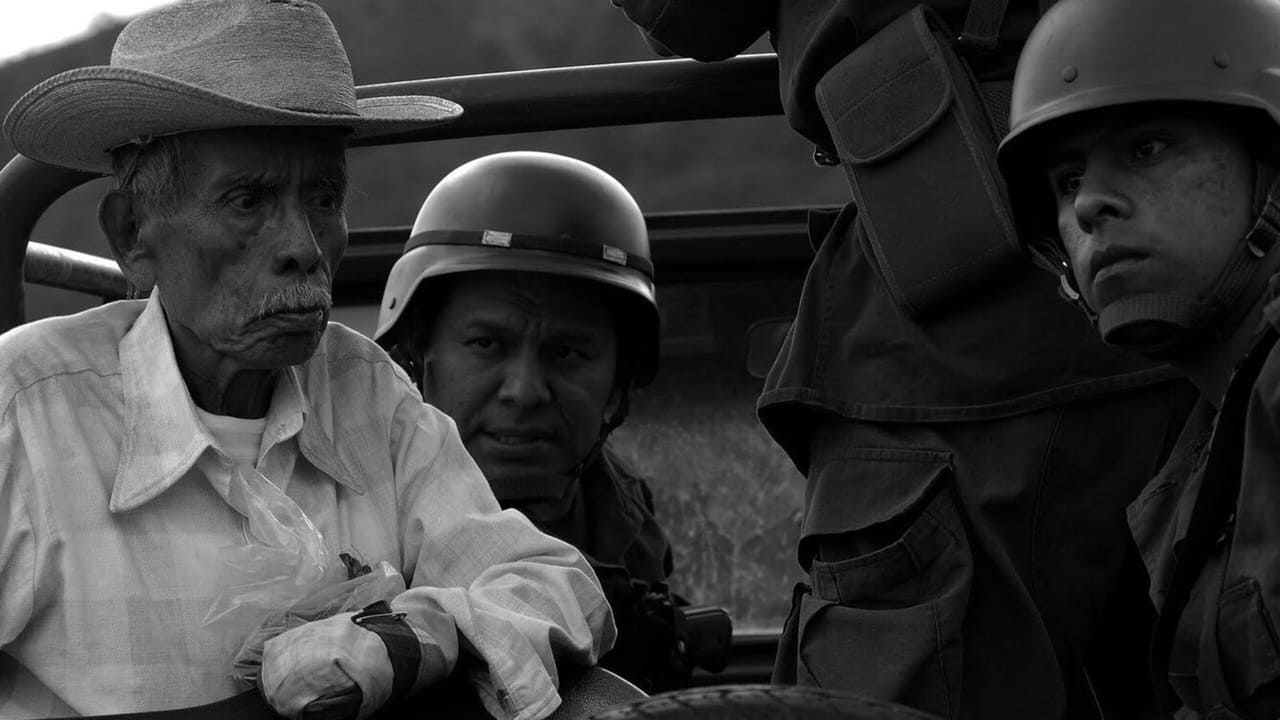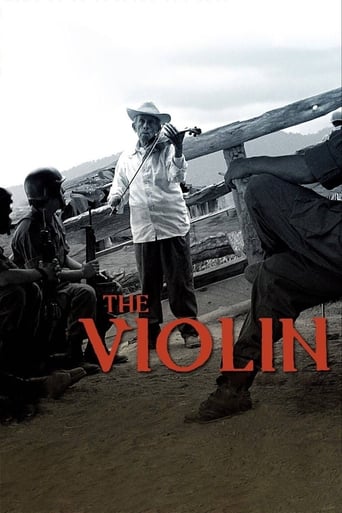Sexylocher
Masterful Movie
Pluskylang
Great Film overall
Supelice
Dreadfully Boring
Myron Clemons
A film of deceptively outspoken contemporary relevance, this is cinema at its most alert, alarming and alive.
the guy on the couch (themoviecouch.blogspot.com)
In an unnamed Latin-American country, a loosely organized peasant rebellion struggles against an oppressive government army. The Mexican film "El Violin" doesn't really get more specific than that in terms of where or when the story takes place. When government forces invade a rebel village, they force the villagers to leave behind a secret ammo stash. While soldiers camp out in the captured village, Genaro (Gerardo Taracena) and his desperate rebels try to figure out a way to get to their munitions. Genaro's elderly father, a one-handed violinist and farmer, takes it upon himself to solve the problem.If I thought the violin might be a fun, lighthearted story, I was completely wrong. The movie opens with a brutal scene of torture, and while the mood occasionally lightens a bit, it generally remains grim. The film never makes it clear what the rebels are fighting against; I guess "oppression" in general. It doesn't really matter. The theme is how the spirit of freedom and rebellion lives on, passed from generation to generation. There is also an exploration of how people might be different given different circumstances. The army captain is a brutal man of war, but he discovers a belated interest in music under the tutelage of the old violinist. I watched "El Violin" largely as part of my Spanish-language study. On its merits as a film, I would say it is a bit too naturalistic for me. It is a well-told story, however, with excellent performances and some beautiful footage of the Mexican countryside. For a viewer who won't mind the pervasive grimness of the tale, it is worth checking out.
Samuel-Maldonado
La Violin has the uncanny feel of intimacy – we are drawn as an audience into the nerve- wrecking and immensely dangerous business of opposing a ruthless and unforgiving army. It also achieves the expression of such a huge story in such a small setting – we are really only exposed to four important characters. But through these people, a whole struggle of a country is exposed – and in a more general sense, any oppressed people anywhere. This inspiring drama really tugs at your heartstrings – especially Don Plutarco (Ángel Tavira) who simultaneously pulls off the innocent grandpa look and the sly plotter that he has to become to protect his family. A powerful fight-the-power drama that will have you lost in a surreal world of honor and rebellion – I just have to give it a 10/10.
jotix100
The lives of peasants living in a remote Mexico village are examined in this marvelous film by director Francisco Vargas. The situation parallels, in a way, the conflict in that country that has been in the news for a few years.As the film opens one can see a prisoner being tortured by a soldier. The scene changes to a bucolic setting in which an old man, his son, and grandson are seen boarding a makeshift truck transporting them to a nearby town. The older man, Plutarco, is a violinist and his son, Genaro, plays the guitar. They play for patrons at a restaurant for tips which the grandson, Lucio collects. With their meager earnings they get to eat. One thing is established, Genaro is part of the rebels that are fighting in the mountains nearby.The story changes quite drastically as the men go back to their village. There are soldiers everywhere setting their town on fire. Genaro, who is involved with the rebels flees to a safer place, leaving the older man and his son to fend for themselves. Plutarco wants to help his son but because he must travel through the soldier's camp in order to go to his small piece of land, he becomes the object of curiosity as the fiddler who becomes a figure of amusement for the commander of the troop. Plutarco's violin will become key to the story, as is his relationship with the top army man will be put to a test. Plutarco and Genaro will be together at the end. These men, like most of their friends and neighbors seem doomed because the unfair way life dealt with them."El violin" is an unique film in which poverty and necessity have made the peasants take things into their own hands trying to get rid of the oppressing and ruthless soldiers that keep them down. It seems that the poor men one sees are part of people that are kept in poverty throughout different generations. The peasants get our admiration for being noble and having to put up with conditions no human being should have to face.The acting is excellent in general. Best of all, Angel Tavira, who is seen as the proud and stoic Plutarco. One can see in this man's eyes a distinct hatred for the men that keep him down, yet, he makes a fatal mistake that will prove fatal. Gerardo Taracena has some good moments as Genaro and Gilberto Palacios appears as the commander.One of the best achievements in the film is the crisp black and white cinematography of Martin Boege and Oscar Hijuelos. This is a major triumph for Francisco Vargas who has created a satisfying story about the oppressed people from Mexico.
Seamus2829
My hat's off to this little,but powerful film from Mexico. 'El Violin' (or as it's being called in it's U.S. release,'The Violin')is a powerful political potboiler about an unnamed Latin American village, being bullied by government troops (sound only too familiar?),against an elderly musician,minus one hand, who still manages to play violin by tying the bow to the stump of his missing hand. This film is being compared to Ken Loach's 'The Wind That Shakes The Barley', but reminds me more of certain unpleasant events that took place in Central America back in the 1980's (does El Salvador strike a familiar chord?). The film is shot in black & white, giving it a look that may remind you of some of the classic Italian dramas (post realist) of post WWII (hint: DeSica's 'Bitter Grapes'). Although the film was completed in 2005, it is just now getting something resembling distribution. A film that is well worth seeking out.

